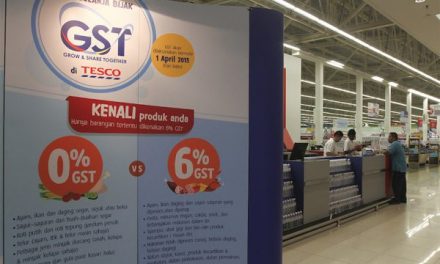Putrajaya announces four-phase Covid-19 recovery plan for Malaysia
Prime Minister Tan Sri Muhyiddin Yassin yesterday introduced a four-phase National Recovery Plan with three specific threshold indicators that will decide if and when Covid-19 pandemic restrictions are lifted in stages. Each of these phases, Muhyiddin said, will be based on thresholds that will look at the daily Covid-19 case average numbers, the capacity of the public health system, and the vaccination rate of the general population. Muhyiddin said each phase will see more restrictions towards economic activities and the social sector ease up as each of these thresholds reach a more satisfactory level, with the fourth and final phase expected to be imposed only towards the end of the year. Under this plan, Malaysia is currently under Phase One, which will move to Phase Two by July if new cases dip to under 4,000, vaccination rate reaches 10%, and intensive care unit’s usage falls to “moderate” level. “Social activities and interstate travel will still not be allowed,” he said, adding the government projects the country to move into Phase Two earliest by next month. Phase Three is projected to be introduced earliest at end of August, while considerations can begin to move into Phase Four, Muhyiddin said, once the daily Covid-19 numbers drop below the 500-cases mark and at least 60% of the population is fully vaccinated. “Based on projections of the National Covid-19 Immunisation Plan, this transition is expected to be implemented as early as October 2021,” he said. (Malay Mail)

Axiata Group to seal Malaysia ops merger deal with Telenor in days
Malaysia’s Axiata Group Bhd said it could sign a definitive merger agreement with Norway’s Telenor to merge both companies’ Malaysian operations, in a matter of days or weeks. Earlier in April, both companies said they were working toward finalising a deal to combine Celcom Networks Bhd and Digi.com Bhd. Axiata and Telenor will have an equal ownership of 33.1% each in the merged entity, Celcom Digi Bhd. Bloomberg reported the planned merger come as the Malaysian government’s move to build and manage a 5G network on its own instead of relying on private carriers has spurred expectations of a consolidation in the industry. The merged entity will be have 19 million cellphone users in total, challenging rival Maxis Bhd, and a combined revenue of RM12.4bil (US$3bil). The new company will remain listed on Bursa Malaysia, according to the statement. (The Star)
New Bukit Bintang scramble crossing to improve walkability
A new Shibuya-style “scramble pedestrian crossing” will be introduced in the busy Bukit Bintang area starting June 19. According to Kuala Lumpur City Hall (DBKL), the new pedestrian crossing, to be introduced at the intersection of Jalan Sultan Ismail and Jalan Bukit Bintang, would optimise walkability in the high traffic pedestrian area. “Pedestrians will be allowed to cross in all directions with the change. These changes make it easier for road users who pass through the road as well as reduce the risk of accidents,” DBKL said in a statement. A scramble junction, also known as an X-crossing, is a pedestrian-crossing system that stops all vehicular traffic and allows those on foot to cross an intersection in every direction, including diagonally, at the same time. The most famous of these intersections is the Shibuya station crossing in Japan, where hundreds of people cross the street in all directions at once. The new pedestrian system will go live at midnight on June 19. (The Star)

MCO 3.0: Malaysia suffers RM1b losses daily, says Muhyiddin
The government has suffered losses of RM1 billion daily throughout the current movement control order (MCO 3.0), said Prime Minister Tan Sri Muhyiddin Yassin. Describing the decision to implement the MCO as not an easy one, he said Malaysia needs to come out of the Covid-19 crisis quickly for the sake of everyone’s health and survival. “I have announced the Pemerkasa Plus economic stimulus and financial aid package worth RM40 billion with a fiscal injection of RM5 billion. I hope this government assistance will ease the burden shouldered by the affected individuals and businesses,” he said in a special address on the National Recovery Plan. Finance Minister Datuk Seri Tengku Zafrul Abdul Aziz had previously said that the country lost RM2.4bil daily during the first MCO and the figure fell to RM300mil daily during MCO 2.0 after more economic sectors were allowed to operate. (Malay Mail)
Bcorp on path to revival, plans RM5bil non-core asset sale
Berjaya Corp Bhd’s group CEO Jalil Rasheed is laying the groundwork for the company to dispose RM5bil worth of non-core assets over the next five years and to halve its current debts of RM5bil in three years. In unveiling his three-year strategic plan, he said the diversified group would be reorganised into five key business areas – retail, food & beverage, property, hospitality and services that includes gaming, environment, digital services and financial technology. “This process will optimise our resources better, improve synergies and efficiency within the Group, and enhance corporate governance and transparency,” he said. Jalil, the former president and CEO of Permodalan Nasional Bhd, was tapped to lead BCorp in March. He was given the mandate by founder Tan Sri Vincent Tan to take a fresh look at BCorp’s corporate structure and turn the group into a high performing business organisation. Under the plan, Jalil said the group would be streamlined to focus on “sub-segments & countries which we want to be in,” while pursuing sale of “non- core businesses and merger of overlapping businesses.” (The Star)





